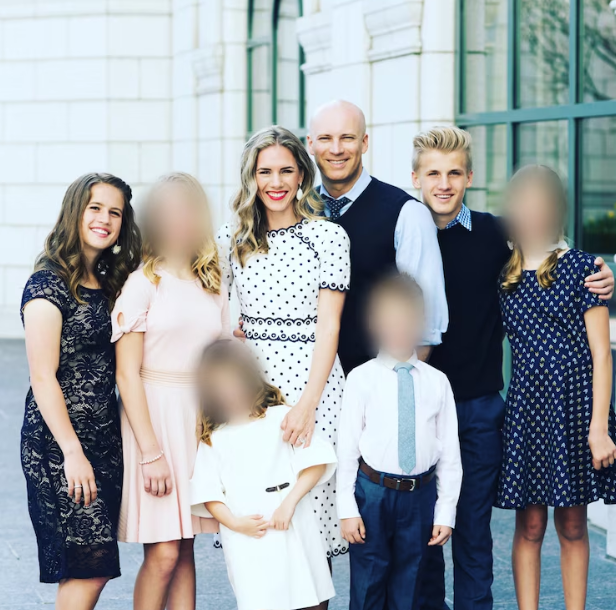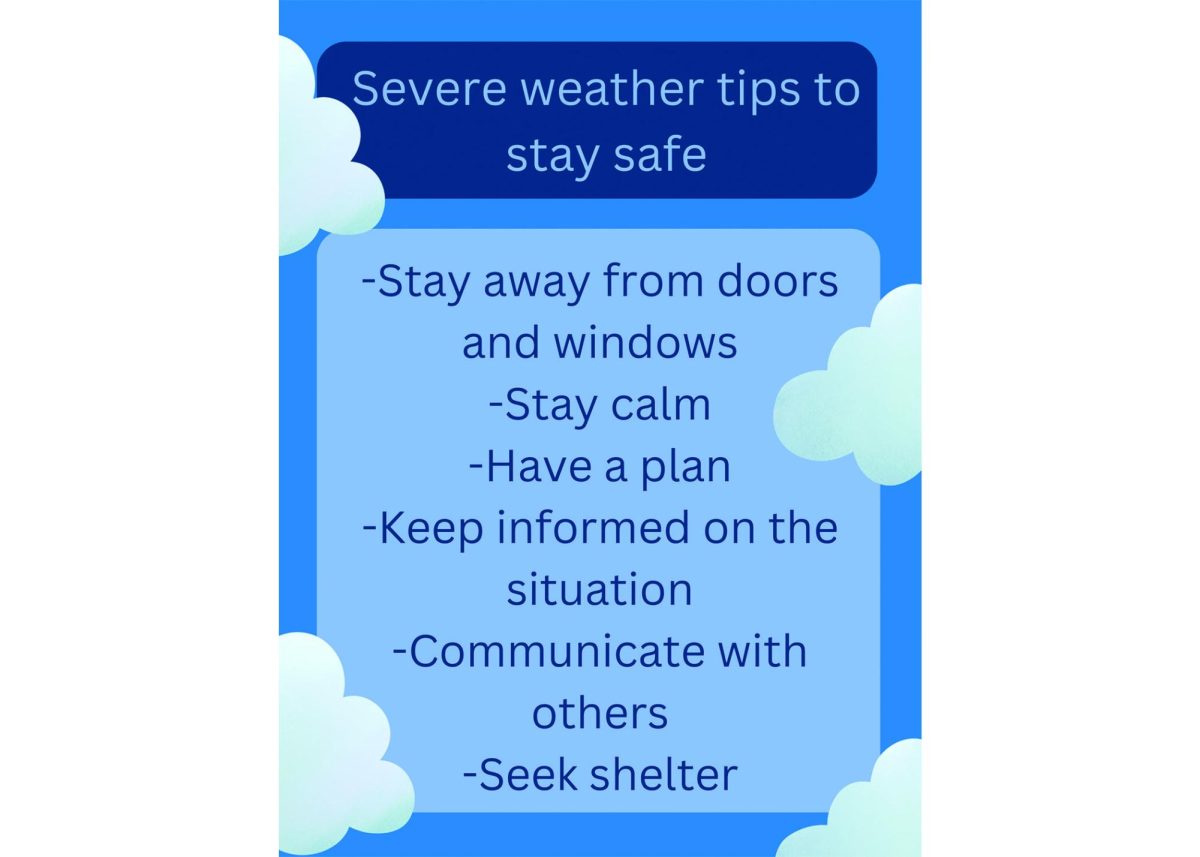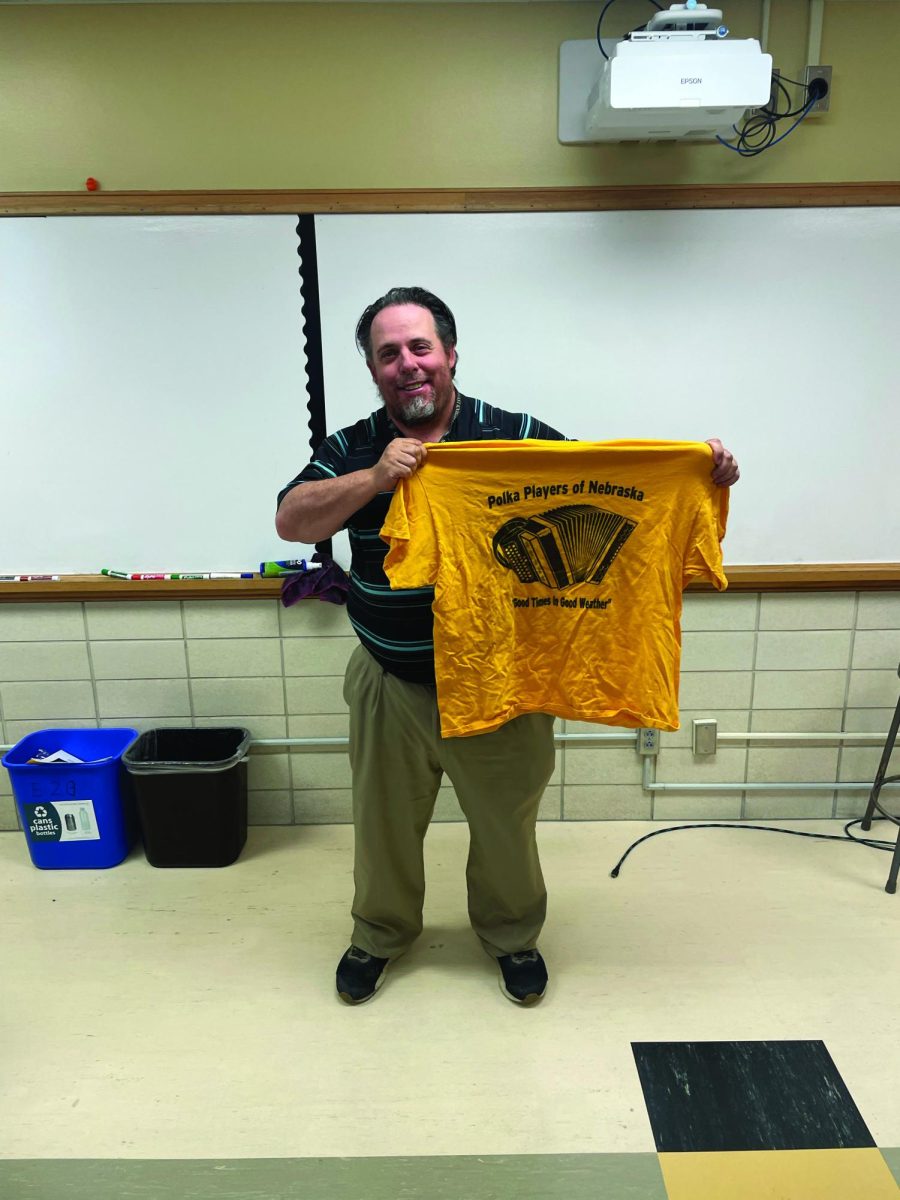By: Lizzy Lavin –
Hope. Where does it come from? How can we as humans, regardless of the life circumstances we have, have more hope than others? Those who are going through illness, financial crisis, or whatever obstacle it may be, can have more hope than those who are more privileged than them. Hope doesn’t have to be correlated with wealth, well-being, religion or spiritual beliefs. How do we have this thing, that can be so hard to define but yet have so much power it can stand all on it’s own?
At a young age, freshman Joy Christensen has experienced the difficulties life can throw at us bouncing in the foster care system for years until she was adopted the summer of 2015. It started when she was young and had behavioral issues.
“I was a very troubled child, I would have tantrums and they would last for hours. My parents couldn’t get them to stop,” said Christensen. “They put me into caps to see if they would change my behavior.”
Christensen was the youngest one in Counseling and Psychological Services at Bryan Hospital (CAPS) at the age of six. CAPS isn’t a permanent place, so she was then sent to her first group home.
“I was in a group home for a year and a half and it was very hard. I had some strange people I was with. I was probably only seven and was the youngest in there,” said Christensen. “I did have hope I would get out of it, I didn’t know when, but I knew if I’d stick through it that I would get out.”
The process of having a forever home seemed impossible to most in her situation, but Christensen’s hope and perseverance would prove to be effective.
The director of the group home had a meeting with Christensen’s parents regarding if they wanted to have her come back home or stay in the foster care system. They didn’t want her to come back home and sent Christensen to her first foster home.
“Not even six months later I went into my second one and then my third six months later and then my fourth, which I stayed there for two years. I didn’t think that I was going to go anywhere, but after I found out that I wasn’t going to stay there I literally just blew up,” said Christensen.
Christiansen said she never really knew the reasoning behind having to leave the foster homes. Usually she was picked up and sent to a new home with no knowledge of why she had to leave or even where her new home would be.
“As a foster kid, you don’t get to take any of the stuff you have from that home because you don’t know that you are going. You either just have a trash bag of stuff with you or you have nothing,” said Christensen.
The effect it had on her was reflected in her behavior at a young age and she was put on medication that wasn’t best fitted for her and increased the negative behavior.
“My step mom diagnosed me with bipolar and schizophrenia and all of this stuff that I didn’t actually have, but my dad didn’t speak up because he’s scared of her and my siblings didn’t speak up either because they are also scared of her,” said Christensen. “I was on medication that I didn’t need to be on. I was on medication that even adults pretty much weren’t supposed to be on.”
This medication had a great affect on her behavior and no one knew the ‘real story’ due to no one speaking up.
“I had some trouble in 4th grade but I was in a resource room where I wasn’t allowed to go into classrooms or be with other kids. My homework would go to that classroom and I would have to do it in there and I stayed in there for two years, and I had some very bad grades,” said Christensen. “From 5th grade I went to a camp, Royal Family Kids Camp, [and I met] my mom that I have now. From then on she looked out for me, she made sure I was okay.”
She was starting to see and experience what it was like to have a mentor and stable adult in her life.
“After camp was over, she ended up becoming my mentor, we have a list of kids you can pick from and I was on the last few that hadn’t got pick and she didn’t want to do me because she knew the troubles I got into,” said Christensen. “From there she ended up being my foster mom for a year and a half and I was adopted July 8th, 2015.”
She didn’t have support of a family until 2015 but that doesn’t mean there weren’t people there for her.
“I had a few friends that knew I was going to get out it and was going to stick with me no matter what,” said Christensen. “That really does help, if you have a problem that you are facing and don’t think you can go it alone ask for some help from a friend or a trusted teacher. Having someone there with you does help because you have someone to help take the burden.”
When finding hope in situations that might seem really dark and a place where one thinks no positivity can be found, just know Joy is here to advocate for hope any place, anywhere.
“You can find it pretty much anywhere depending on who you’re with, who you are and what the problem is. You just have to look,” said Christensen. “To have hope, it gets you through.”
She believes when having hope you start to focus on the future rather than what you predicament you might be in now.
“Foster kids are the same as actual kids. They’re not any different, they’ve just gone through stuff other people haven’t. That’s the one trouble I had in 6th grade, I had people bullying me because of my background story and what I was wearing and everything that had happen to me. While they might be going through the same thing, it’s just a little bit different but it’s the exact same thing. We all have hard times in our life, that we have to get through, it’s just how we get through them that’s the difference.”
Hope At LSE:
Wyatt Tiangco- How he defines hope
“The will to want to believe that there’s something better in any sort of situation and it’s not so much a feeling, like a state of mind that’s ironically found in a lot of people,” said Tiangco.
Wyatt Tiangco, a junior, has hope. He has had an understanding of how life can be so different for all of us, and that hope can be harder to find for others.
“There’s the fact that you are even alive, or that you are still having a home or you get food,” said Tiangco. “You just have to look at, even the tiniest of things, how your life is better than what some people might not have and that’s where hope roots from is how your life is better than some people’s and even in the tiniest of things.”
Tiangco didn’t come to this mindset alone. The influence of others and his family have driven him to find hope.
“It’s not like I can do it by myself all the time, my mom is pretty big example of that because I look at how her life was and how much better mine is and how much better mine can get because her life got so much better,” said Tiangco.
Being able to have hope doesn’t have to require wealth, or health.
“For me, I don’t know this first hand, but if I were in that situation it’d drive me more to find hope. That’s a pretty big generalization considering I’m not the one that’s going through it but I would hope that is a driving force, just like my mom is my driving force, their driving force is ‘how can get this better? How can I make it get better?’” said Tiangco. “Personally it’s because no matter what I’ve been through considering how many different things I’ve had to deal with I’m some how able to be involved in so many different things and have so many great friends and just overall good life.”
Lanie Schlueter –
“It’ s having a positive outlook on a bad situation,” said Schlueter
Lanie Schlueter, a junior, thinks hope can be instilled in you by people who raise you.
“Honestly I think it’s more on how you’re raised because my parents always encouraged me to see the positive in any situation and I guess if you weren’t raised to think that way then you might not have as much hope in you,” said Schlueter.
Schlueter has hope in the things that mean the most to her.
“My horse hurt himself pretty bad a few years back and I just hope that he’ll someday be sound enough that we can do more stuff together but for the most part he just limps a lot,” said Schlueter.
Her hope can be situational.
“I think it kinda varies, like in math class I’m like ‘oh there’s no hope’ but in other classes I guess I’m more persistent with that kind of stuff,” said Schlueter.
Schlueter’s hope goes beyond just herself and her surroundings.
“I hope that people can start to understand each other and accept each other’s differences because I think that is causing so much trouble these days,” said Schlueter
She believes that if people have a little more of ‘I can do it’ attitude things would change for people’s hope and persistence towards problems.
Reis Jensen-
“Keeping your eyes on the road ahead and still thinking whatever situation you are in you are probably going to get out of it and you are going to try to get out of it,” said Jensen.
Reis Jensen, a sophomore, believes it is important when dealing with situations that happen in one’s life is to find hope.
“Once people don’t have hope they don’t see the cliche ‘end of the tunnel’ and they are just caught in that situation so hope is seeing the future and believing you are going to get out of that tough place,” said Jensen.
Jensen is inspired when it comes to finding his hope. When seeing other people’s struggles and how they’ve come out helps with how he can overcome his own struggles.
“Especially me involved in sports I know a lot of famous players that had a rough life and they made it out,” said Jensen. “Not even the sports idea of it just the way they can go through any situation they have and get out of that and make it to where they want to be.”
He not only finds motivation in well known people who can inspire millions, but has inspiration in his own family.
“I look up to my older brother because he had a lot of rough spots growing up and he just went through a lot and he just didn’t want me to be like him but at the same time I looked up to him because the way he changed,” said Jensen. “What he showed to me made me have hope for what I can do, he brought a lessons to me.”
Staying hopeful has been something he has grown up with.
“I’ve never really been taught that something’s impossible, there’s always a way,” said Jensen. “There’s time that hope diminishes and there’s very little and I think that’s just how much stress the situation has and the way things are going but I think there’s always hope in things because I just believe there’s hope in everything.”







